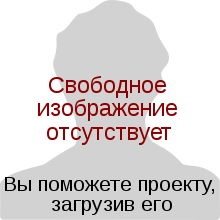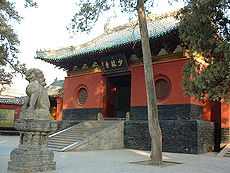- Wu Ta-k'uei
-
吳大揆
Wu Ta-k'uei
Born 1923 Died 1972 Notable students Wu Kuang-yu Wu Ta-k'uei Traditional Chinese 吳大揆 Transcriptions Mandarin - Hanyu Pinyin Wú Dàkuí - Wade–Giles Wu2 Ta4-k'uei2 Cantonese (Yue) - Yale Romanization Ng4 Daai6 Kwai4 Part of the series on
Chinese martial artsList of Chinese martial arts Terms Historical places - Shaolin Monastery (少林寺)
- Wudang Mountains (武當山)
- Mount Hua (華山)
- Mount Emei (峨嵋山)
- Kunlun Mountains (崑崙山)
Historical people - Five Elders (五祖)
- Yim Wing-chun / Yan Yongchun (嚴詠春)
- Hung Hei-gun / Hong Xiguan (洪熙官)
- Fong Sai-yuk / Fang Shiyu (方世玉)
- Dong Haichuan (董海川)
- Yang Lu-ch'an (楊露禪)
- Wu Quanyou (吳全佑)
- Ten Tigers of Canton (廣東十虎)
- Chen Fake (陳發科)
- Chan Heung / Chen Xiang (陳享)
- Wong Fei-hung / Huang Feihong (黃飛鴻)
- Sun Lu-t'ang (孫祿堂)
- Huo Yuanjia (霍元甲)
- Yip Man / Ye Wen (葉問)
- Wang Zi-Ping (王子平)
- Bruce Lee / Li Xiaolong (李小龍)
- Jackie Chan / Cheng Long (成龍)
- Sammo Hung / Hong Jinbao (洪金寶)
- Yuen Biao / Yuán Biāo (元彪)
- Jet Li / Li Lian Jie (李連杰)
- Donnie Yen / Zhēn Zǐdān (甄子丹)
Legendary figures - Bodhidharma / Putidamo / Damo (菩提達摩)
- Zhang Sanfeng (張三丰)
- Eight immortals (八仙)
Related Wu Ta-k'uei (1923–1972) was a Chinese t'ai chi ch'uan teacher of Manchu ancestry.[1] The oldest son of Wu Kung-i, he was born in Beijing, raised in Shanghai (where he was first taught t'ai chi ch'uan by his grandfather, Wu Chien-ch'uan) and spent most of his adult life teaching in Hong Kong. [2][3] Wu Ta-k'uei was active in the resistance to the Japanese invasion of China, yet he later taught martial arts in Japan after the war.[2]
Wu Ta-k'uei was reputed to be a fierce fighter, and known as always ready to accept a challenge match. He is reported to have never been defeated, and to have been famous for badly injuring and taunting his opponents in those matches.[3] An attested story circulated about Wu Ta-k'uei was about a fight that started in a Hong Kong dockside bar between an unarmed Wu Ta-k'uei and "over 30" stevedores armed with clubs and boathooks. The dockworkers eventually fled to a local police station for protection from the enraged Wu. Interviews with dockworkers and the police records of this fight led to sensational newspaper headlines in Kowloon and Hong Kong.[3]
Wu Ta-k'uei assisted his father and his uncle Wu Kung-tsao to set up academies in Hong Kong, Macau and Singapore.[3] He also sat on the Advisory Board of the Martial Art Association in Hong Kong and taught martial arts in the Kowloon Police Force.[3]
His oldest son, Eddie Wu Kuang-yu, is the current "gate-keeper" of the Wu family.
Contents
T'ai chi family tree
This family tree is not comprehensive.
LEGENDARY FIGURES | Zhang Sanfeng* circa 12th century NEIJIA | Wang Zongyue* | | THE 5 MAJOR CLASSICAL FAMILY STYLES | Chen Wangting 1600-1680 9th generation Chen CHEN STYLE | +-------------------------------------------------------------------+ | | Chen Changxing Chen Youben 1771-1853 14th generation Chen circa 1800s 14th generation Chen Chen Old Frame Chen New Frame | | Yang Lu-ch'an Chen Qingping 1799–1872 1795–1868 YANG STYLE Chen Small Frame, Zhaobao Frame | | +---------------------------------+-----------------------------+ | | | | | Yang Pan-hou Yang Chien-hou Wu Yu-hsiang 1837–92 1839–1917 1812–80 Yang Small Frame | WU/HAO STYLE | +-----------------+ | | | | | Wu Ch'uan-yu Yang Shao-hou Yang Ch'eng-fu Li I-yu 1834–1902 1862–1930 1883–1936 1832–92 | Yang Small Frame Yang Big Frame | Wu Chien-ch'uan | Hao Wei-chen 1870–1942 Yang Shou-chung 1849–1920 WU STYLE 1910–85 108 Form | | Sun Lu-t'ang Wu Kung-i 1861–1932 1900–70 SUN STYLE | | Wu Ta-k'uei Sun Hsing-i 1923–72 1891–1929 | Wu Kuang-yu b.1946
Generational senior instructors of the Wu family
1st Generation
- Wu Ch'uan-yu (Wu Quanyou, 吳全佑, 1834–1902), who learned from Yang Lu-ch'an and Yang Pan-hou, was senior instructor of the family from 1870-1902.
2nd generation
- His oldest son, Wu Chien-ch'uan (Wu Jianquan, 吳鑑泉, 1870–1942), was senior from 1902-1942.
3rd Generation
- His oldest son, Wu Kung-i (Wu Gongyi, 吳公儀, 1900–1970) was senior from 1942-1970.
- Wu Kung-i's younger brother, Wu Kung-tsao (Wu Gongzao, 吳公藻, 1903–1983), was senior from 1970-1983.
- Wu Kung-i's younger sister, Wu Ying-hua (Wu Yinghua, 吳英華, 1907–1997), was senior from 1983-1997.
4th Generation
- Wu Kung-i's daughter, Wu Yen-hsia (Wu Yanxia, 吳雁霞, 1930–2001) was senior from 1997-2001.
- Wu Kung-tsao's son, Wu Ta-hsin (Wu Daxin, 吳大新, 1933–2005), was senior from 2001-2005.
5th Generation
- The current senior instructor of the Wu family is Wu Ta-k'uei's son Wu Kuang-yu (Wu Guangyu, Eddie Wu, 吳光宇, born 1946).
See also
- 108 form Wu family T'ai Chi Ch'uan
External links
References
- ^ Cai, Naibiao (2006). In Memory of Wu Daxin - Journal of Asian Martial Arts Vol. 15 No. 1. Via Media Publishing, Erie Pennsylvania USA. ISSN 1057-8358.
- ^ a b Yip, Y. L. (Autumn 1998). A Perspective on the Development of Taijiquan – Qi, The Journal of Traditional Eastern Health and Fitness Vol. 8 No. 3. Insight Graphics Publishers. ISSN 1056-4004.
- ^ a b c d e Yip, Y. L. (Autumn 2002). Pivot – Qi, The Journal of Traditional Eastern Health and Fitness Vol. 12 No. 3. Insight Graphics Publishers. ISSN 1056-4004.
Categories:- 1923 births
- 1972 deaths
- Chinese Tai Chi Chuan practitioners
- Manchu people
- People from Shanghai
Wikimedia Foundation. 2010.

